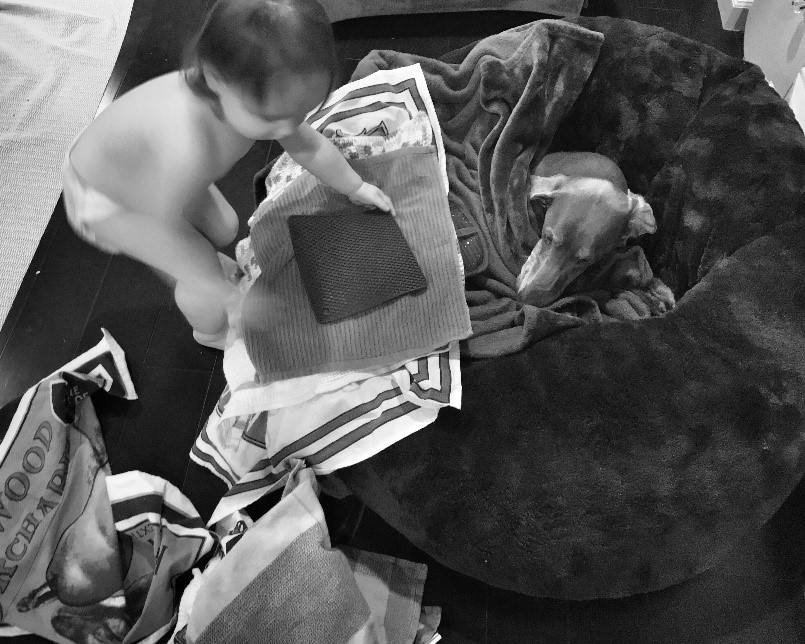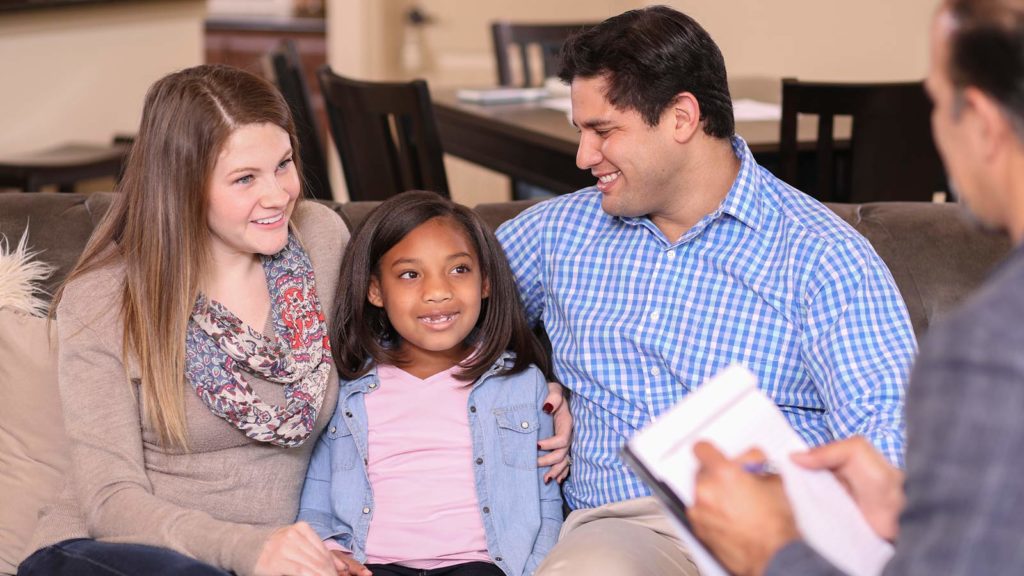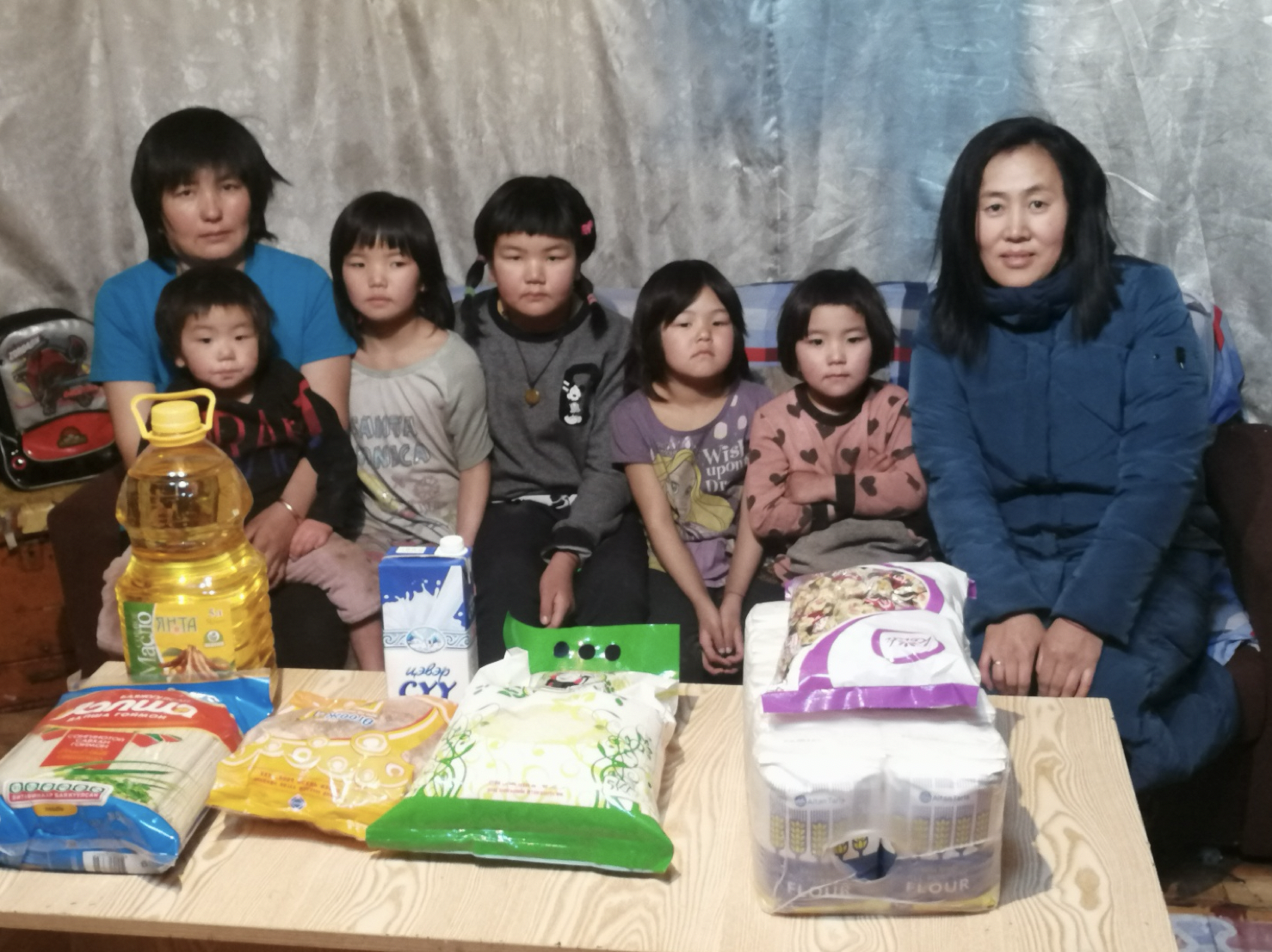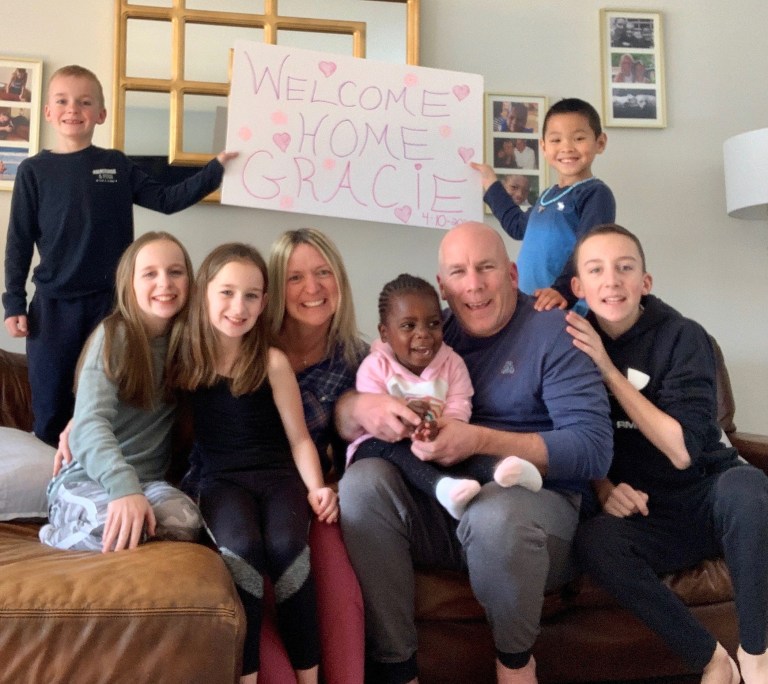Holt’s senior vice president for U.S. foster care and adoption shares some advice to help temper your expectations as a parent and remain happier and healthier — during the holidays and all year round.
A few years ago, we were enjoying an extended visit by my daughter and 2-year-old granddaughter. It was great, and messy, and fun, and exhausting. Parenthood isn’t wasted on the young.
I remember decorating the house for Christmas that year. With an inquisitive 2-year-old visiting, we learned new methods for childproofing. Necessity is, indeed, the mother of invention.

We bought too many of those inexpensive, shatterproof plastic ornaments. We hung lights up high, and we chose an out-of-reach wreath rather than a traditional tree. Many of our nostalgic, and breakable, items remained in storage, because we’d rather enjoy our granddaughter than stress about things getting broken.
We’re not perfect, however. There was a lot of occasional frustration that year. We are a work in progress.
Here’s the point: Our expectations were where they need to be. We expected our granddaughter to learn by touching. We knew she would lack self-control. We discovered that our new normal involved her pretending to be a cat and thoroughly enjoying covering our long-suffering dog with dish towels. We expected to do a lot of cleaning up and still have a messy house. The frustration was kept to a minimum, though. Memories and laughter won out.
We’re not perfect, however. There was a lot of occasional frustration that year. We are a work in progress.
As a grandfather, I get this. As a dad, I fear that I messed it all up. I wish I could go back in time and sit my younger self down for a long talk about expectations as a parent. Here’s what I would say:
1. Let go of your daydreams about parenting. Those ideas are about you, not your children. Be open to what your child’s individual passions bring. You’ll all be happier, and healthier.
2. Understand that children with trauma backgrounds develop at a different pace, behind in one area and drastically advanced in others. Say it aloud with me, “It will be ok.” Study your child, and learn their behaviors. Then, you should be the one to adjust accordingly.
3. Never, at any point, should you ever compare your family to others in word, thought or deed. Just be. Enjoy each other. Celebrate your unique identity as a family. Celebrate the diverse cultures that may be represented among your family members. Acknowledge and accept that success may be defined differently in your family than in another.
4. Seek out the voices of other members of the adoption triad. Find adult adoptees and listen intently. As primary experts on the subject, they offer so much to learn from their stories and perspectives.
5. Stop trying to fix everything. This, I confess, has been the hardest for me. We can’t fix their loss, we can’t erase their pain. All we can do is be present and offer comfort and acceptance. Sometimes, our efforts to ‘fix’ everything does nothing more than communicate to our children that they are broken. (Sigh)

Like I said, I wish I could go back. I can’t. But I can go forward, and that is something I am willing to do. I find a great deal of comfort in this quote by the late Dr. Maya Angelou:
“I did then what I knew how to do. Now that I know better, I do better. You should not be judged for the person that you were, but for the person you are trying to be.”
May you have a wonderful holiday season this year. 2020 has brought plenty of trouble, but we are moving forward. Here’s to 2021!
Greg Eubanks | Former Holt team member

Receive Post Adoption Coaching & Education
All parents encounter challenges as their children grow up. And sometimes, issues may arise that leave you uncertain as to how best to respond. But not every issue requires therapy or counseling. The PACE program is here to help during those times.

